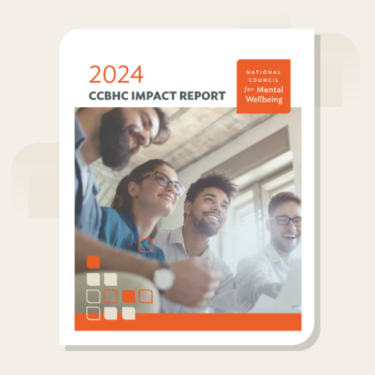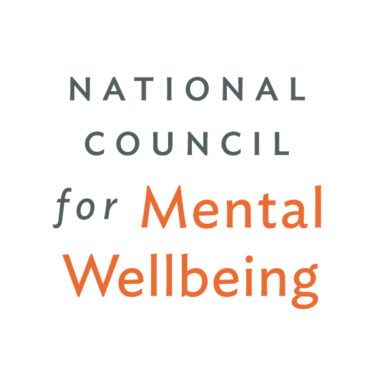Contact:
Sophia Majlessi
SophiaM@TheNationalCouncil.org
(202) 621-1631
WASHINGTON, D.C. (March 14, 2019) — The National Council for Mental Wellbeing is pleased the Excellence in Mental Health and Addiction Treatment Expansion Act (S. 824/H.R. 1767) was reintroduced today. We thank the original sponsors, Sens. Roy Blunt (R-Mo.) and Debbie Stabenow (D-Mich.), with Reps. Doris Matsui (D-Calif.) and Markwayne Mullin (R-Okla.), as well as the new bipartisan co-sponsors.
Congress created the Certified Community Behavioral Health Clinic (CCBHC) program in 2014 as an eight-state, two-year, demonstration project for states to improve access to evidence-based care, addiction treatment and mental health care; improve care coordination; and provide 24/7/365 access to emergency care. Today’s reintroduction of the Excellence in Mental Health and Addiction Treatment Expansion Act seeks to renew the CCBHC demonstration program in the original eight states for two years and expand it to 11 additional states.
The passage of the Excellence in Mental Health Act began to address the desperate demand for treatment of addictions and mental illnesses. The eight states are leading a bold shift in this country, transforming community services from a patchwork of underfunded and overburdened organizations into a thriving array of clinics that provide patient-centered care. This important legislation would allow current innovation to continue for another two years, expand the opportunity so others struggling can get effective care and enable important analysis and learning that can be shared nationwide.
The CCBHC model represents a critical advance in coordinating and integrating addiction care. Early results from the two-year program demonstrate that 94 percent of CCBHCs report an increase in the number of persons receiving treatment for an opioid use disorder (OUD) and 92 percent of CCBHCs offer at least one type of FDA-approved medication-assisted treatment (MAT), either on-site or via referral to an outside program. Expanding the model will allow more communities to respond to the opioid epidemic that is ravaging the country.
Once again demonstrating their leadership and ongoing commitment to science-based community treatment, the National Council looks forward to working with Sens. Stabenow and Blunt and with Reps. Matsui and Mullin to pass the bipartisan Excellence in Mental Health and Addiction Treatment Expansion Act.
###
The National Council for Mental Wellbeing is the unifying voice of America’s health care organizations that deliver mental health and addictions treatment and services. Together with our 3,000 member organizations serving over 10 million adults, children and families living with mental illnesses and addictions, the National Council is committed to all Americans having access to comprehensive, high-quality care that affords every opportunity for recovery. The National Council introduced Mental Health First Aid USA and more than 1.5 million Americans have been trained.
About The National Council
Founded in 1969, the National Council for Mental Wellbeing is a membership organization that drives policy and social change on behalf of over 3,400 mental health and substance use treatment organizations and the more than 10 million children, adults and families they serve. We advocate for policies to ensure equitable access to high-quality services. We build the capacity of mental health and substance use treatment organizations. And we promote greater understanding of mental wellbeing as a core component of comprehensive health and health care. Through our Mental Health First Aid (MHFA) program, we have trained more than 3 million people in the U.S. to identify, understand and respond to signs and symptoms of mental health and substance use challenges.



